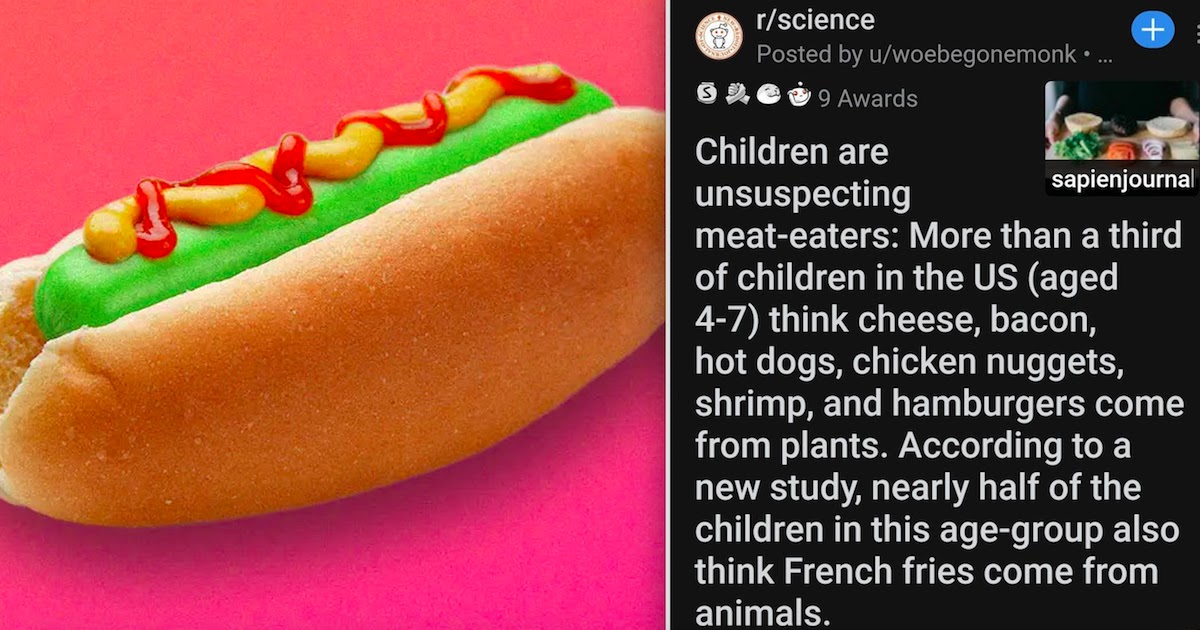
In shocking new research, it has been revealed that as many as 40% of children in the United States believe that hot dogs are a kind of vegetable. The new research highlighted by the Sapien Journal and shows a complete lack of understanding by American youngsters regarding their food and its origins.
Bizarrely, and surprisingly, 40% believed hot dogs came from plants, 41% did not realise that bacon came from an animal, and 46% believed that French fries were animal based.
The research involved interviewing 175 children living in an urban setting in the south-east of the United States.
The researchers state:
"We found pervasive errors in their basic food knowledge. Foods derived from animals—especially, but not exclusively meats—were among those that children understood the least well. We suggest that the results may reveal a fundamental misunderstanding in children's knowledge of animal based foods, and we discuss reasons why the origins of meat may represent a particularly challenging concept for children to grasp."
They add:
"With respect to meats, the percent of children claiming that hamburgers, hot dogs, and bacon come from plants ranged from 36 percent to 41 percent. Even chicken nuggets, a food that has an animal in its name, were categorized as a plant-based food by more than a third of the children in our sample… Overall, children appear to reject the idea of certain animals as food sources, which we know to be a culturally inaccurate rejection."
Some have suggested that due to children having positive views towards animals, many parents may not be revealing the true source of their food consumption out of fear of upsetting them. Some also suggest that this in itself, the fact that children care for animals, could lead to the youth making better decisions about food in the long run, turning towards vegetarianism, and lessening their environmental and carbon footprint. This is something the research paper notes, saying:
"Although they do not yet vote or hold positions of leadership, they do possess attitudes and biases that support environmentally-responsible behaviours. Childhood may therefore represent a unique opportunity during which to establish lifelong habits that help to mitigate climate change." 1
[Based on reporting by: Futurism]












COMMENTS